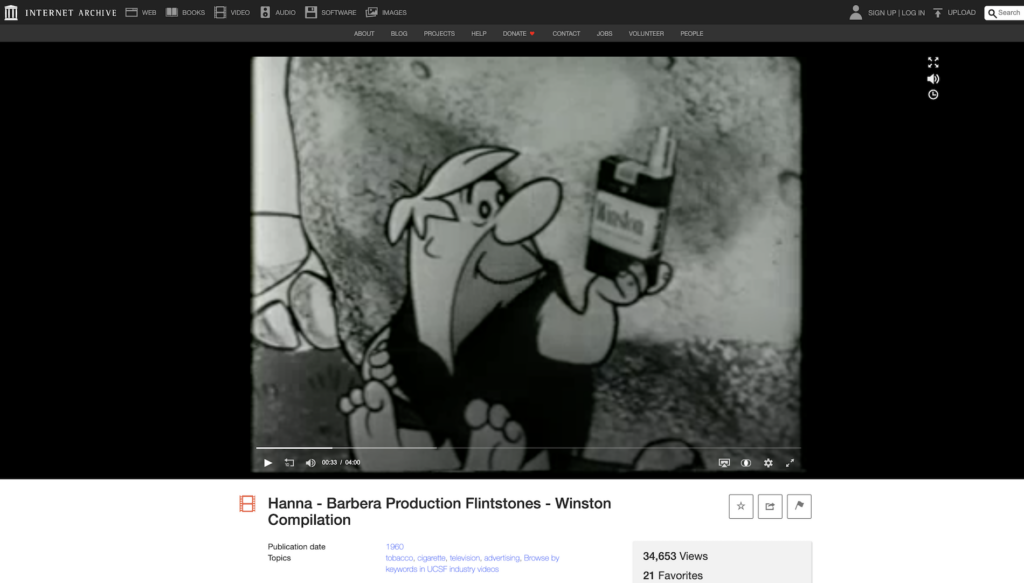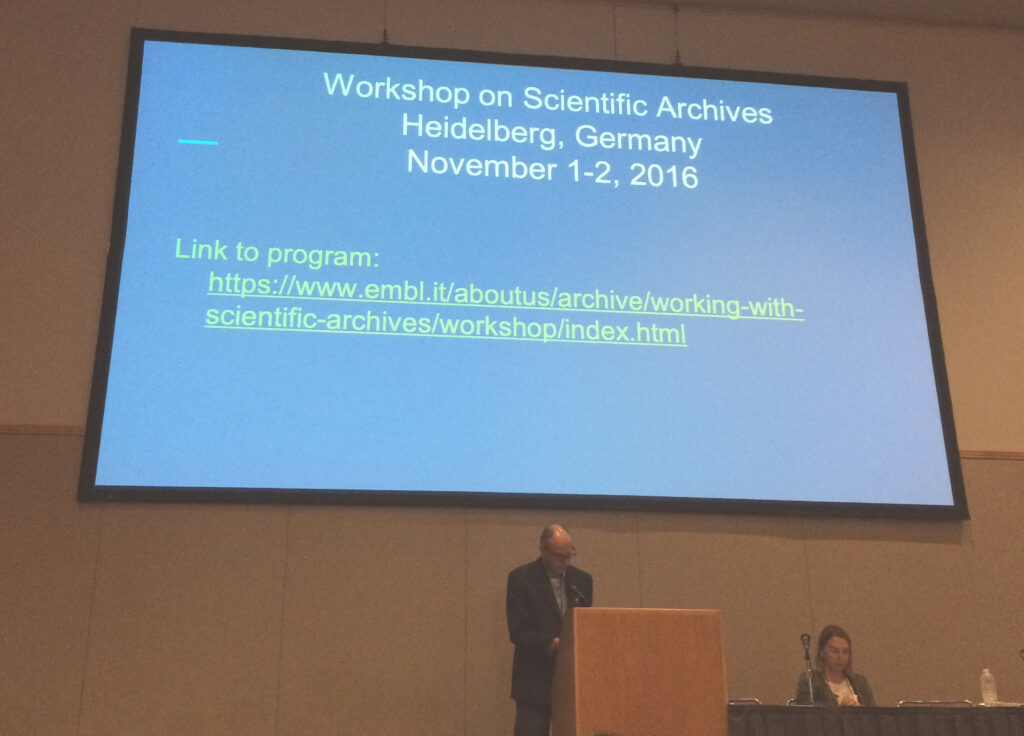The Medical Heritage Library 10th Anniversary Conference took place on November 13, 2020. UCSF Archives & Special Collections staff attended the day of virtual presentations, and our Industry Documents Library archivists delivered a talk titled “Smoke on Screens: Audiovisual Evidence of the Tobacco Industry’s Harms to Public Health.”
The conference was convened to celebrate a decade of digitizing and making available medical history resources. Keynote speaker Dr. Jaipreet Virdi, Assistant Professor for the Department of History at the University of Delaware, presented her work on Digitized Disability Histories. She discussed disability identity as represented through material objects of disability, and examined how disability history is separate from medical history.
The program also included fascinating talks from nine other speakers, ranging from the rhetoric used in early 20th century motherhood manuals to medicalize infant care and degrade traditional knowledge, to using convolutional neural networks (CNN) to identify and label objects in historical images in order to visualize thematic collections at scale, to studying the historical lessons from popular culture and medical discourse of face masks during the 1918-1919 Flu epidemic.
All talks were recorded and are being made available with captioning on the Medical Heritage Library YouTube channel (see Session 2 for the “Smoke on Screens” talk).
The Medical Heritage Library (MHL) is “a collaborative digitization and discovery organization committed to providing open access to the history of medicine and health resources.” It was established in 2009 with a grant from the Alfred P. Sloan Foundation to begin digitizing 50,000 medical history texts, and now includes more than 323,000 items made available by multiple contributors through an access portal on the Internet Archive.
UCSF Archives & Special Collections is a contributing partner to the Medical Heritage Library. In 2015-2017 A&SC collaborated with four other medical libraries to digitize and make publicly accessible state medical journals, funded by a $275,000 National Endowment for the Humanities (NEH) grant. 97 journal titles were digitized (nearly every state medical journal in the U.S.) resulting in over 2.7 million full-text searchable pages.
The Industry Documents Library has contributed over 5,000 video recordings to the MHL, beginning in 2012. These videos are part of our Truth Tobacco Industry Documents collection and include recordings of cigarette commercials, marketing focus groups, internal corporate meetings and trainings, depositions of tobacco company employees, and congressional hearings. The recordings document the industry’s marketing and public relations strategies to cast doubt on the harms of smoking and to prevent or delay public health regulations.



